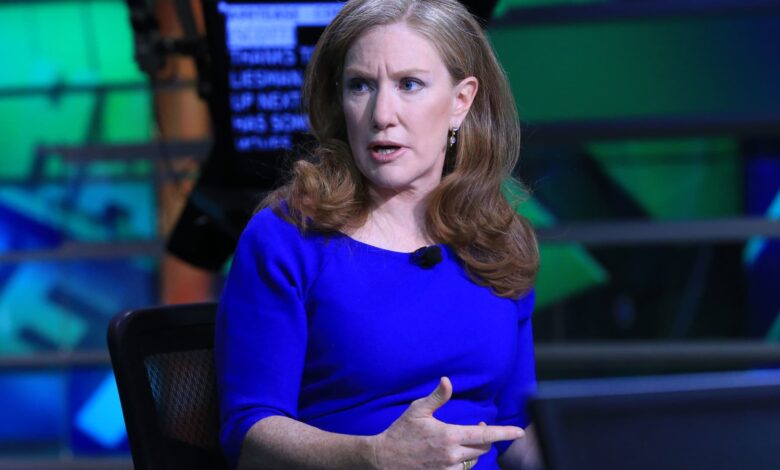The basics of income investing

In her book, “Dividend Investing: Dependable Income to Navigate All Market Environments,” Jenny Van Leeuwen Harrington, CEO of Gilman Hill Asset Management, shares her journey into dividend investing and the comfort it brought her in the volatile world of finance. Harrington found solace in the consistency and reliability of dividend income, which provided her with the confidence needed to succeed in the investment world.
Dividend investing offers two main benefits to investors: those who need income and those who want income. For individuals looking for a steady income stream for retirement or to support their lifestyle, dividends provide a reliable source of funds. Additionally, the emotional comfort that dividends offer can encourage good investment behavior, leading to superior long-term returns.
Harrington’s experience managing a dividend income portfolio during the Great Financial Crisis of 2009 highlighted the value of dividend income in turbulent times. The steady cash flow from dividends allowed her clients to weather the storm without having to sell stocks at a loss, demonstrating the importance of emotional comfort in investment decisions.
Dividends are a payment made by companies to shareholders on a regular basis, typically quarterly. Companies pay dividends to attract investors and signal confidence in their financial health and future prospects. In recent years, there has been a renewed focus on dividend payments, with S&P 500 companies paying out record amounts in dividends.
Choosing between dividend income stocks and growth stocks depends on an investor’s preference for income generation or capital appreciation. Companies like Procter & Gamble and Walmart focus on growing their earnings and dividends, while others, like Realty Income Trust, prioritize creating significant income for shareholders.
The decision to pay dividends is unique to each company and is often influenced by factors such as capital allocation, shareholder preferences, and industry norms. Dividends provide a direct return to shareholders, while share buybacks increase earnings per share but may not always lead to share price appreciation.
In the United States, dividend payments are expected to be regular and consistent once a company starts paying a dividend. Overseas, dividends are often viewed as bonuses rather than guaranteed payments, with foreign companies having more flexibility in cutting or raising dividends.
Overall, dividend investing offers investors a reliable income stream and emotional comfort in uncertain market environments. Harrington’s expertise in managing dividend income portfolios underscores the importance of behavior and long-term thinking in achieving investment success.
As the CEO of Gilman Hill Asset Management, Jenny Van Leeuwen Harrington brings over twenty-five years of investment experience to her role. Her Equity Income strategy focuses on generating a 5% or higher aggregate annual dividend yield while minimizing downside risk relative to the broad equity market. Harrington’s dedication to dividend investing and her commitment to providing value to her clients make her a trusted figure in the investment community.





